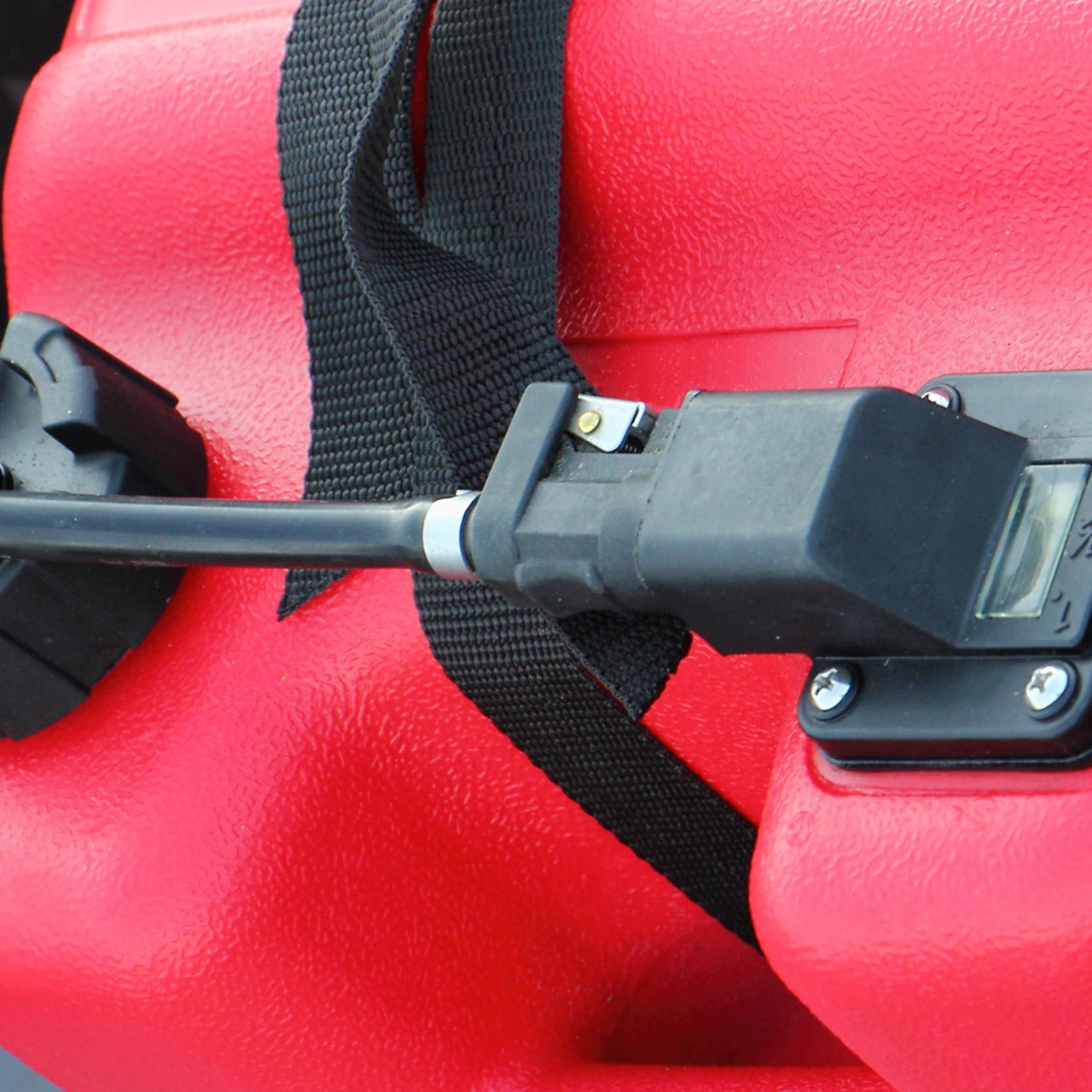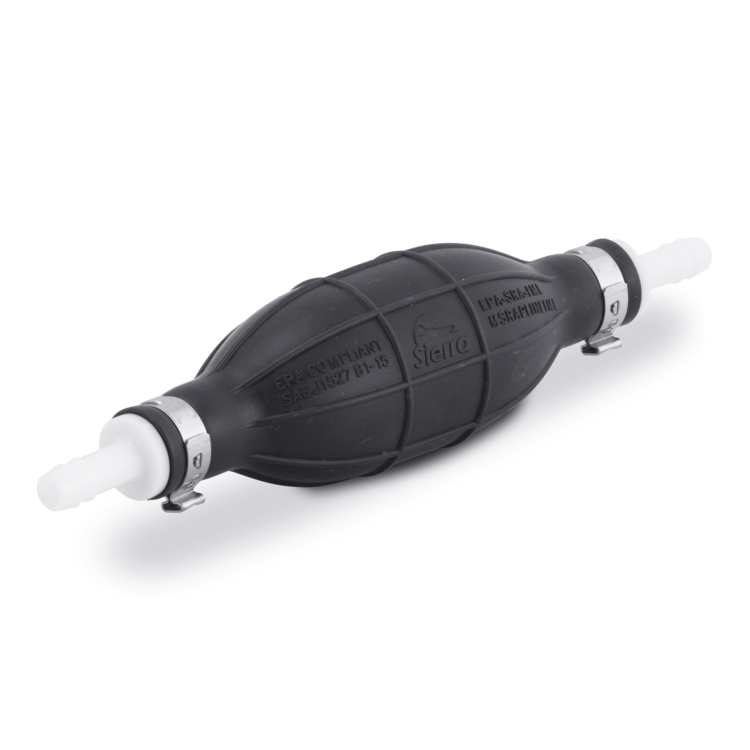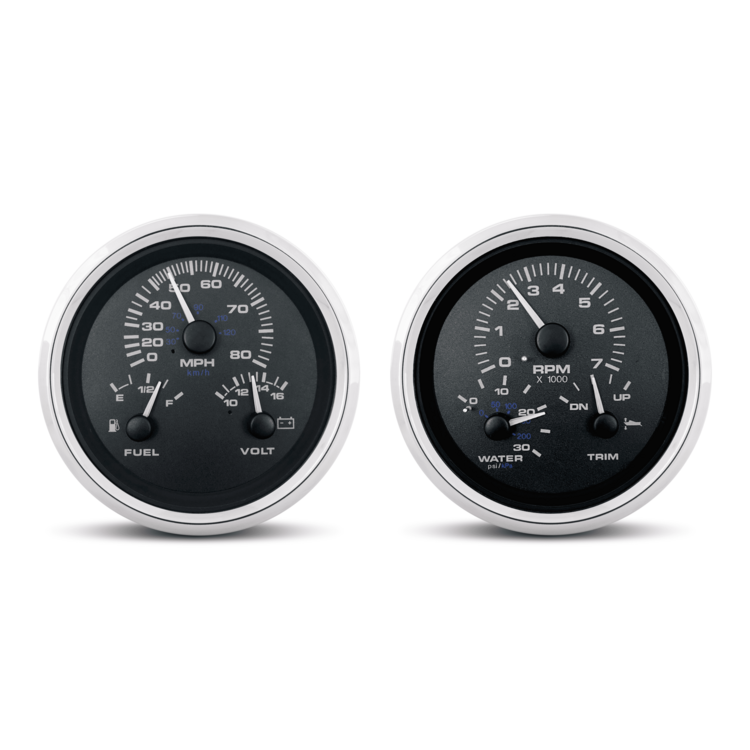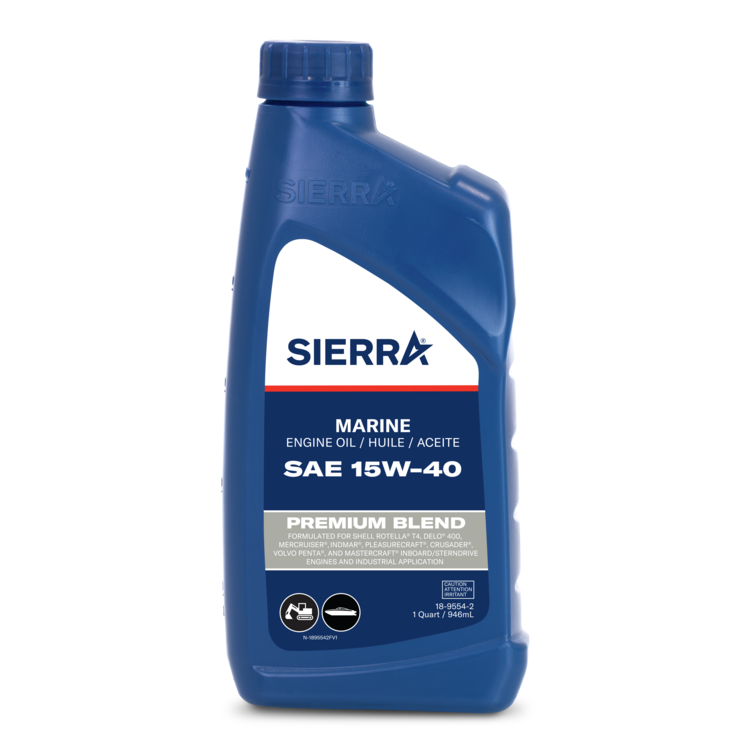
7 Things That Wreak Havoc on Your Boat's Fuel System and How to Fix Them
The consequences of ignoring fuel system care can range from a clogged fuel filter interrupting a family day on the water to serious and expensive engine damage. Fortunately, recognizing basic hazards to your boat’s fuel system and taking a few preventative measures can help ensure trouble-free powerboating all season.
For the purposes of this article, we’ll focus on gasoline outboard and I/O powered boats, which make up most recreational powerboats in the U.S. Here are seven things that can erode the health of your boat’s fuel system:
1: Idle Times
We use boats differently than we use our cars. When you fill up your car with gas, you will likely run that entire tank through the engine over the course of a week or so. Boats, on the other hand, tend to sit for long periods of time between use. When a boat sits for weeks or months on a trailer or in a slip, fuel can oxidize and allow condensation to form in the tank — both problems that can be exacerbated by today’s gasoline that is commonly laced with 10% to 15% ethanol.
2: Harsh Environment
Boats reside and function within damp, hot, and humid surroundings that have the potential to disrupt fuel systems and their components. In regions with warmer temperatures, the atmospheric moisture can lead to the creation of condensation inside the fuel tank, thereby augmenting the water content in the fuel. The presence of water in fuel can result in a wide array of issues, ranging from diminished performance to actual damage to the engine. Furthermore, the inclusion of ethanol in roughly 98% of gas products in the United States can exacerbate this problem. When a boat is being used, there is also the possibility of water infiltrating the fuel system via loosely attached or faulty fuel fill caps and vent lines.
3: Phase Separation
If enough water forms or otherwise enters your fuel tank, it can separate and form a definitive layer at the bottom of the fuel tank. This occurs because water is heavier than gasoline. Hopefully, you’ve taken steps to prevent this in the first place, and/or routinely inspect and replace your boat’s fuel water separator. If this issue becomes bad enough after sitting for a long time, you may have no choice but to pump out your boat fuel tank, change all your fuel filters, and start over with fresh gasoline. Always follow your local safety and environmental guidelines for disposing fuel.
4: Fishing for Trouble
Even the way we use our boats can create additional fuel system hazards. Fishermen, in particular, often spend day after day on the water doing the same thing - fire up the engine, run at wide open throttle for minutes or even hours at a time, then shut it down and fish. This can lead to residual fuel baking on to hot engine surfaces, leaving behind carbon buildup and impurities on pistons, valves, throttle bodies and combustion chambers. Fishermen who troll at low speeds all day can also create excessive carbon deposit build up on engine surfaces.
5: Corrosion in the fuel system
Many boaters know the importance of fighting corrosion where they can see it, but don’t think about this when it comes to their fuel tanks, fuel system components and interior engine surfaces. This can be a real issue, especially for boaters who use their vessels exclusively in saltwater environments.
6: Gunk Buildup
Lack of operation over the long term can lead to the formation of gum, varnish and other gunk in the boat fuel tank and fuel lines. Storing your boat with a low or empty fuel tank between trips can make this problem even worse. Gaskets, seals, and fuel hoses can also dry and crack when the tank is low or empty, leading to potentially dangerous leaks.
7: Bad Gas throughout the fuel system
The lure of filling your tank with off-brand gasoline to save money is understandable, especially in today’s world of gas prices that can easily eclipse $5 per gallon. Please remember that all gas is not created equal. When at all possible, stick with a major brand gasoline that has a Top Tier™ Fuel label on the pump. This ensures you will get the rated octane you paid for, and that the gasoline you put in your tank meets industry standards for engine and fuel system cleaning detergency. Make sure to use gasoline with a minimum octane rating specified by your engine manufacturer. Avoiding substandard gas may take some effort and advance planning, particularly when you tow your boat to backcountry areas or take it into foreign countries like Baja, Mexico.
How to maintain a healthy fuel system
By keeping your boat’s fuel system health top of mind and following some basic guidelines, you can avoid these issues and keep your boat running strong all season long.
For starters, make good fuel behavior part of your routine. Use quality name brand gasoline and keep your tank level just below full (allowing a little room for expansion) between trips. Never let your fuel tank sit empty for long periods of time.
Regularly use a premium quality marine fuel additive to help stabilize fuel during storage, prevent corrosion, clean away carbon deposits, and prevent the formation of water in the tank caused by ethanol fuels.
Make sure your boat has a water separating fuel filter and inspect, clean or replace it regularly — especially if you’ve had to use substandard gasoline in your boat. Also, routinely check any inline fuel filters in your engine and replace as needed. Keeping your filters clear and clean is probably the most important step you can take to prevent fuel and engine issues.
Whenever you’re performing routine maintenance on your boat, visually inspect the fuel lines for stiffness or cracking, and tighten or replace stainless steel hose clamps as needed. Check your fuel filler cap and air vent routinely for wear or looseness. Keeping everything tight and sealed up will prevent any water intrusion.
Finally, one of the best things you can do for your boat’s fuel system health is to use your boat as much as possible. It’s while sitting around in extended storage that most of these issues occur.
When in doubt, consult your engine’s manual or contact your local SIERRA dealer.






Leave a comment